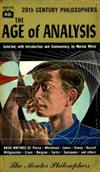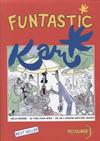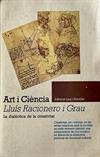
The Invention of Solitude
1 journaler for this copy...
This was the first non-fiction book I've read by Paul Auster, and I loved it as much as I did the novels. The man's got talent. I'd happily read his shopping list. Kind of stating the obvious here, so I'd better move on.
I confess I liked the first part, Portrait of an Invisible Man, more than the second.
There were so many phrases and excerpts that plucked certain strings of my psyche, but I think I'll just give you two, and keep the rest to myself.
"[...] each ejaculation contains several billion sperm cells - or roughly the same number as there are people in the world - which means that, in himself, each man holds the potential of an entire world. And what would happen, could it happen, is the full range of possibilities: a spawn of idiots and geniuses, of the beautiful and the deformed, of saints, catatonics, thieves, stock brokers, and high-wire artists. Each man, therefore, is the entire world, bearing within his genes a memory of all mankind. Or, as Leibniz put it: 'Every living substance is a perpetual living mirror of the universe.' For the fact is, we are of the same stuff that came into being with the first explosion of the first spark in the infinite emptiness of space."
"It is also true that memory sometimes comes to him as a voice. It is a voice that speaks inside him, and it is not necessarily his own. It speaks to him in the way a voice might tell stories to a child, and yet at times this voice makes fun of him, or calls him to attention, or curses him in no uncertain terms. At times it willfully distorts the story it is telling him, changing facts to suit its whims, catering to the interests of drama rather than truth. Then he must speak to it in his own voice and tell it to stop, thus returning it to the silence it came from. At other times it sings to him. At still other times it whispers. And then there are the times it merely hums, or babbles, or cries out in pain. And even when it says nothing, he knows it is still there, and in the silence of this voice that says nothing, he waits for it to speak."
I confess I liked the first part, Portrait of an Invisible Man, more than the second.
There were so many phrases and excerpts that plucked certain strings of my psyche, but I think I'll just give you two, and keep the rest to myself.
"[...] each ejaculation contains several billion sperm cells - or roughly the same number as there are people in the world - which means that, in himself, each man holds the potential of an entire world. And what would happen, could it happen, is the full range of possibilities: a spawn of idiots and geniuses, of the beautiful and the deformed, of saints, catatonics, thieves, stock brokers, and high-wire artists. Each man, therefore, is the entire world, bearing within his genes a memory of all mankind. Or, as Leibniz put it: 'Every living substance is a perpetual living mirror of the universe.' For the fact is, we are of the same stuff that came into being with the first explosion of the first spark in the infinite emptiness of space."
"It is also true that memory sometimes comes to him as a voice. It is a voice that speaks inside him, and it is not necessarily his own. It speaks to him in the way a voice might tell stories to a child, and yet at times this voice makes fun of him, or calls him to attention, or curses him in no uncertain terms. At times it willfully distorts the story it is telling him, changing facts to suit its whims, catering to the interests of drama rather than truth. Then he must speak to it in his own voice and tell it to stop, thus returning it to the silence it came from. At other times it sings to him. At still other times it whispers. And then there are the times it merely hums, or babbles, or cries out in pain. And even when it says nothing, he knows it is still there, and in the silence of this voice that says nothing, he waits for it to speak."









